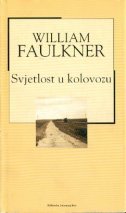What do you think?
Rate this book


415 pages, Hardcover
First published March 12, 1932



He thought that it was loneliness which he was trying to escape and not himself. But the street ran on: catlike, one place was the same as another to him. But in none of them could he be quiet. But the street ran on in its moods and phases, always empty: he might have seen himself as in numberless avatars, in silence, doomed with motion, driven by the courage of flagged and spurred despair; by the despair of courage whose opportunities had to be flagged and spurred. He was thirty three years old.
He believed with a calm joy that if ever there was shelter, it would be the Church; that if ever truth could walk naked and without shame or fear, it would be in the seminary. When he believed that he had heard the call it seemed to him that he could see his future, his life, intact and on all sides complete and inviolable, like a classic and serene vase, where the spirit could be born anew sheltered from the harsh gale of living and die so, peacefully, with only the far sound of the circumvented wind, with scarce even a handful of rotting dust to be disposed of. That was what the word seminary meant: quiet and safe walls within which the hampered and garment-worried spirit could learn anew serenity to contemplate without horror or alarm its own nakedness.
"Memory believes before knowing remembers. Believes longer than recollects, longer than knowing even wonders".Are there many such novels that delve deep into our souls and that makes us suffer and weep? I believe there are many, but not many that imprison us in its tidings and with their beauty in such a way that escape is an impossibility. Yes, we cannot run away any less than its wretched characters could. Indeed, William Faulkner in Light in August wrote a tragedy set in the fictional Jefferson that compares with the classic tale of Oedipus.
"And so as he sat in the shadows of the ruined garden on that August night three months later and heard the clock in the courthouse two miles away strike ten and then eleven, he believed with calm paradox that he was the volitionless servant of the fatality in which he believed that he did not believe. He was saying to himself I had to do it already in the past tense; I had to do it. She said so herself."
"He was sick after that. He did not know until then that there were white women who would take a man with a black skin. He stayed sick for two years. Sometimes he would remember how he had once tricked or teased white men into calling him a negro in order to fight them, to beat them or be beaten; now he fought the negro who called him white."
"Then he was home again. Perhaps he expected to be punished upon his return, for what, what crime exactly, he did not expect to know, since he had already learned that, though children can accept adults as adults, adults can never accept children as anything but adults too."
"She had lived there eight years before she opened the window for the first time. She had not opened it a dozen times hardly before she discovered that she should not have opened it at all. She said to herself, ‘That’s just my luck.’"
"He never acted like either a nigger or a white man. That was it. That was what made the folks so mad. For him to be a murderer and all dressed up and walking the town like he dared them to touch him, when he ought to have been skulking and hiding in the woods, muddy and dirty and running. It was like he never even knew he was a murderer, let alone a nigger too."
Now it was still, quiet, the fecund earth now coolly suspirant. The dark was filled with voices, myriad, out of all time that he had known, as though all the past was a flat pattern. And going on: tomorrow night, all the tomorrows, to be a part of the flat pattern, going on. He thought of that with quiet astonishment: going on, myriad, familiar, since all that had ever been was the same as all that was to be, since tomorrow to-be and had-been would be the same. Then it was time.
But there was too much running with him, stride for stride with him. Not pursuers: but himself: years, acts, deeds omitted and committed, keeping pace with him, stride for stride, breath for breath, thud for thud of the heart, using a single heart.
...now and at last they had all played out the parts which had been allotted them and now they could live quietly with one another.

